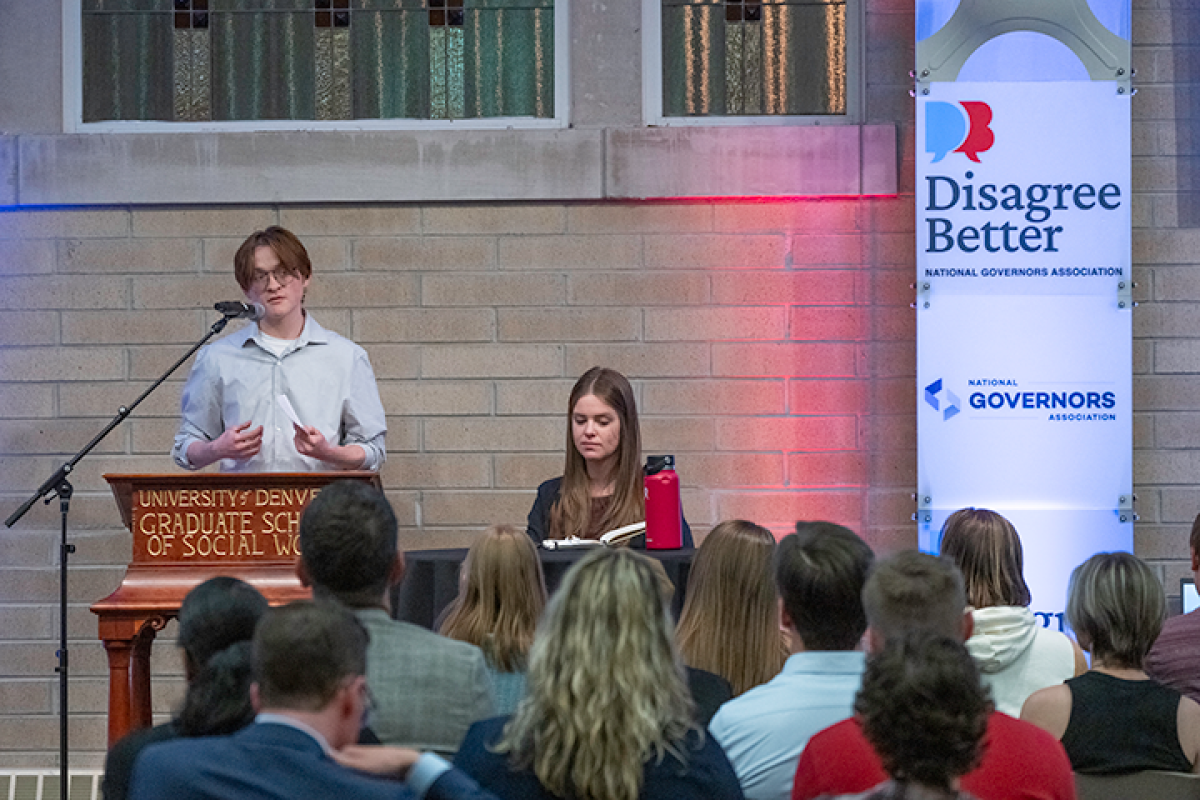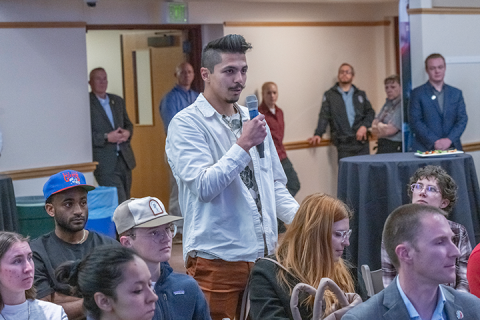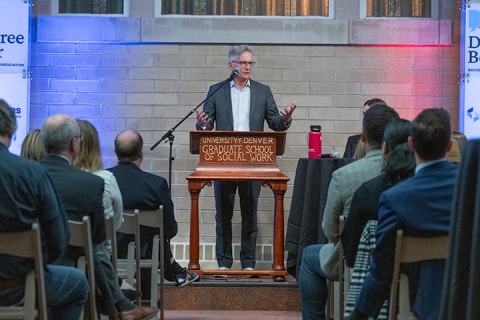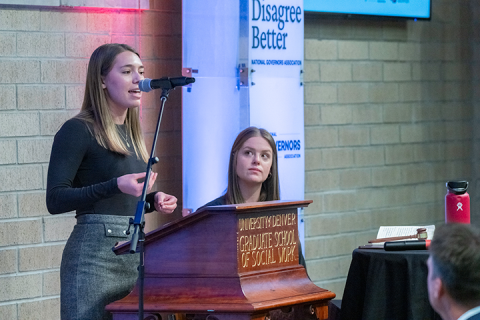University of Denver Students Learn to Disagree Better

“We don’t have to come to an agreement to have a good conversation,” says Ross Irwin, co-founder and chief operations officer of BridgeUSA.
This was the idea behind the creation of the nonprofit organization, which was established in 2017 after a series of violent protests in Berkeley, California. Focused on helping people approach conflict with civility, BridgeUSA organizes open discussions on politics at high schools and on college campuses around the country.
BridgeUSA works in partnership with two other organizations, Braver Angels and the American Council of Trustees and Alumni (ACTA), as part of the College Debates and Discourse Alliance. The alliance works with campuses to facilitate conversations that foster understanding, cultivate respect and shape participants into informed citizens. It isn’t about winning arguments, Irwin says. “The ability to disagree is the most important thing we are trying to teach.”
Earlier this month, Braver Angels hosted an amended parliamentary-style debate in Craig Hall at the University of Denver. Instructions were simple. “Say what you believe and why—and assume that everybody is coming from a place of genuine curiosity and good faith,” says Sadie Webb, program manager for the College Debates and Discourse Alliance. The Braver Angels debates are noncompetitive—there are no teams, and no one wins or loses.
“We describe them as a sacred pursuit of truth,” Webb says. “We are all here to explore ideas with one another, civilly and respectfully—something that our country struggles to do, unfortunately.”
The DU debate focused on the topic of affirmative action. The first speaker spoke in favor of affirmative action, and the following speaker argued against it. Four students led the conversation, then opened it up for anyone who wanted to take a turn at the podium. Several attendees, some with shaking voices, left their folding chairs to stand before the room and share their unscripted thoughts. Following each speech, questions for the speaker were addressed to the chairperson.
“To be honest with you, I came here expecting a protest,” said a first-time attendee, who was skeptical about how courtesy could be managed for such a controversial topic. He was pleasantly surprised. “I learned from the people I disagreed with,” he said. “I learned more of the reasons why.”
“We are dedicated here at the University of Denver to free speech, to pluralism—but especially to civil discourse,” says DU Chancellor Jeremy Haefner, noting that these oratory skills are essential for students to contribute meaningfully, in schools and as citizens of the world. “Our country is polarized, and the way that we are going to address that issue is to learn how to have these conversations.”
Civil discourse is a key component of the 4D experience at DU, which nurtures students’ well-being and character development as part of their academic journey. “It is absolutely essential, as educators, that we provide this opportunity to our students,” Haefner says.
“We have a broad range of resources at DU for engaging with each other, and I think this is a great model for effective dialogue,” says Jeremy Johnson, an assistant professor of communication studies. Johnson, who coaches the DU debate team, lent his expertise in survey research and logistics to the inaugural event. This event is part of a broader effort on campus to encourage students to navigate challenging conversations, which also includes Denver Dialogues and SPARK.
Conflict offers the potential for growth when people can put their partisan identities aside and try to learn from one another. “We need more of this in our country,” says Utah Governor Spencer Cox, who attended the debate with a group of representatives from the National Governors Association (NGA), including Colorado Governor Jared Polis.
Cox has been integral to an NGA initiative called Disagree Better that launched in July 2023. “We are trying to model this behavior for the rest of the country,” he says. “We are passing every checkpoint towards catastrophic failure of all our most important institutions. Conflict entrepreneurs out there want to divide us.”
Polis echoed sentiments that the dialogue that characterizes the national discussion can be intimidating, and the format of Braver Angels debates is helping to deconstruct the perception that disagreement is something to avoid.










